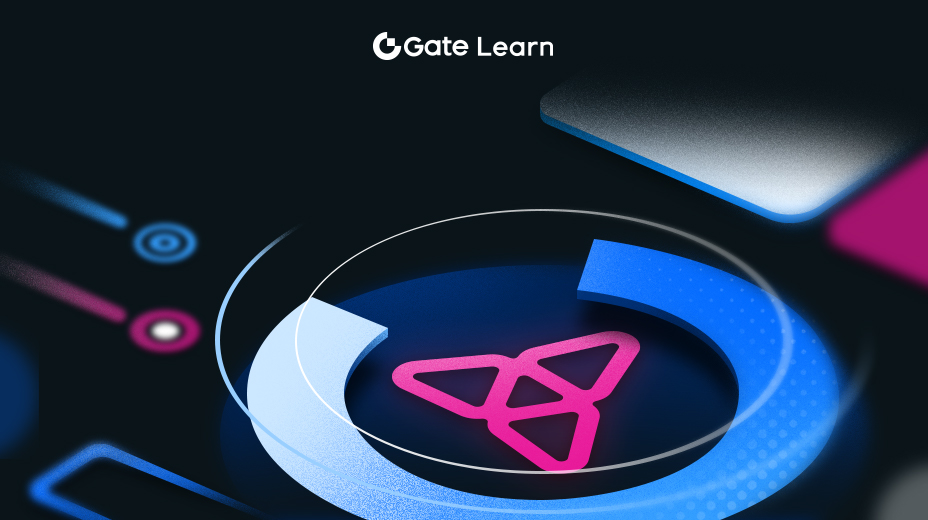技术基础
模块介绍:本模块我们将重点关注使 Multiversx 成为优秀区块链平台的关键技术特性,如安全权益证明(SPoS)共识机制,分片技术的应用,以及网络的扩展性和交易处理能力。我们将深度探索这些复杂的技术,理解它们如何提升 Multiversx 的性能和安全性,确保对推动生态系统的技术创新有充分的理解。
安全权益证明 (SPoS) 共识机制
安全权益证明 (SPoS) 共识机制是 Multiversx 架构的核心,旨在提高区块链验证过程的安全性与效率。与传统的的工作量证明 (PoW) 系统不同,SPoS 不需要庞大的计算资源,使其更加环保且具有成本效益。
SPoS 通过质押机制来选择验证者。验证者根据他们持有的代币数量以及愿意质押的份额被选出。质押就像是一种安全保证金,激励验证者诚实行事。如果验证者行为恶劣,其部分质押将被没收作为惩罚,以确保网络的完整性。
该机制引入了一个随机选择过程来为每个区块选择验证者,从而降低中心化和串通的风险。这种随机性对于保持区块链的去中心化性质以及确保没有单个验证者或验证者群体可以控制网络至关重要。
SPoS 还引入了一个评价系统,根据验证者過去的表现和对网络安全性的贡献对其进行评估。该系统鼓励验证者保持高性能标准和可靠性,因为他们被选为区块验证的机率直接受其评级的影响。
SPoS 的共识过程快速高效,可以实现快速区块确认并缩短交易确认时间。这种效率对于支持高交易量,和确保用户在网络上的流畅体验至关重要。
总而言之,SPoS 提供了一种安全、高效且可扩展的共识机制,支持 Multiversx 区块链的运转。它解决了传统共识机制的许多限制,提供了一种更具可持续性和性能导向的解决方案。
分片技术及其在 Multiversx 中的实现
分片是 Multiversx 的一项关键功能,它通过将网络划分成更小、更易于管理的片段(称为分片, shard)来实现区块链的有效扩展。每个分片处理网络交易的一部分,允许并行处理交易并显著提高网络的整体容量。
Multiversx 实施的分片形式很特殊,称为自适应状态分片 (Adaptive State Sharding)。这种方法结合了三种分片类型:状态分片、交易分片和网络分片。这种方法优化了可扩展性、互操作性与安全性之间的平衡。自适应状态分片允许网络根据交易量和网络参与度动态调整,从而始终确保最佳性能。
在 Multiversx 中实施分片涉及创建与主链并行运行的多个分片链。这些分片链处理交易和智能合约执行,而主链(称为 Metachain)则协调分片链,处理跨分片交易并维护网络安全。
分片使 Multiversx 能够实现惊人的交易速度,每秒有可能处理数万笔交易 (TPS)。此功能对于支持大型去中心化应用程序以及确保网络能够适应未来发展至关重要。
网络的设计确保数据在各个分片之间均匀分布,防止任何单个分片成为瓶颈。这种分布也增强了安全性,因为对一个分片的攻击不会危及整个网络。分片机制会不断优化,以保持高效率和安全标准。
高可扩展性和交易吞吐量
Multiversx 的高可扩展性是其 SPoS 共识机制和分片实施的直接结果。这些技术协同工作,支持大量交易,使网络能够满足去中心化应用和服务不断增长的需求。
网络的可扩展性确保了即使交易数量增加,交易速度也能保持快速。这对于保持无缝的用户体验和支持需要快速交易确认的实时应用至关重要。
Multiversx 的高交易吞吐量每秒能够处理数万笔交易,这使它有别于许多其他区块链平台。这种吞吐量对于该平台支持去中心化数字经济的愿景至关重要,可与传统支付系统的交易处理能力相媲美。
网络的可扩展性还包括支持复杂的智能合约和去中心化应用的能力。开发人员可以在 Multiversx 上构建和部署应用程序,不必担心网络拥堵或交易费用过高等问题,这些问题在可扩展性较低的平台上很常见。
对网络基础设施的持续优化确保 Multiversx 始终处于区块链可扩展性的前沿。通过解决可扩展性、安全性和去中心化这三难问题,Multiversx 为未来的去中心化数字服务奠定了坚实的基础。
亮点
- 安全权益证明 (SPoS) 共识机制通过权益质押机制激励验证者诚信行为,既能提高安全性与效率,又减少了对庞大计算资源的需求。
- SPoS 基于性能的评级系统和随机验证者选择机制可确保网络的去中心化和高完整性。
- 分片技术将网络划分为可管理的片段,允许多个分片同时处理交易,显著提升了交易处理能力。
- Multiversx 中的自适应状态分片可根据网络条件进行动态调整,从而优化可扩展性、互操作性和安全性。
- 网络架构通过分片链和协调作用的 Metachain 链,实现高速交易处理和高效的跨分片交易。
- Multiversx 的可扩展性支持每秒处理数万笔交易,媲美传统支付系统,并且能够容纳大型去中心化应用 (dApp)。
- 持续的优化确保 Multiversx 能够解决区块链的三难困境,为去中心化数字经济提供可扩展、安全且去中心化的平台。





